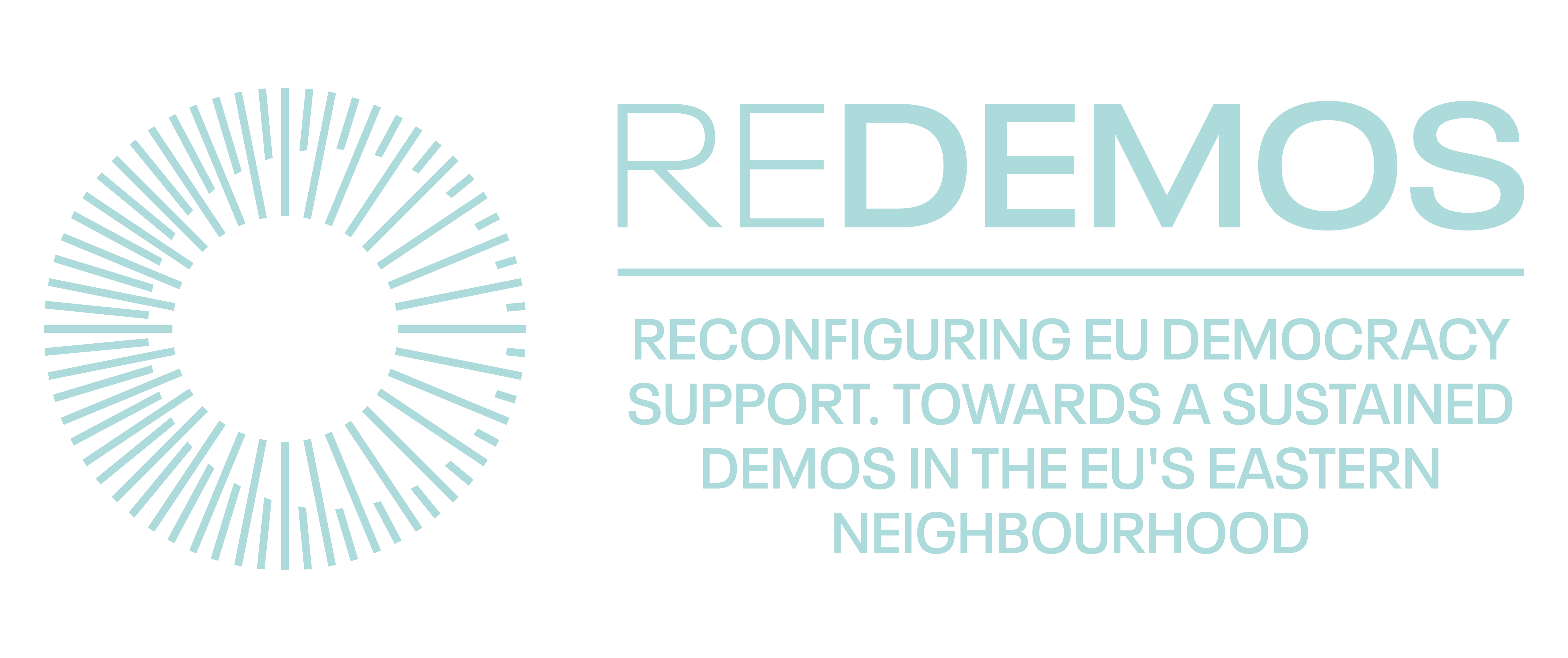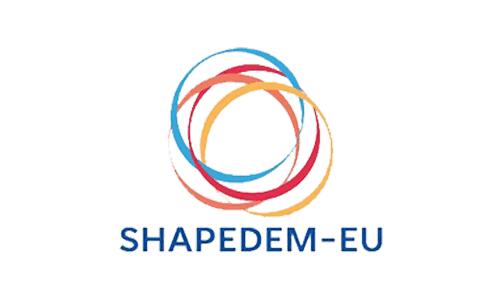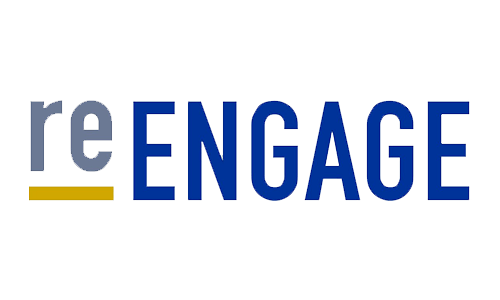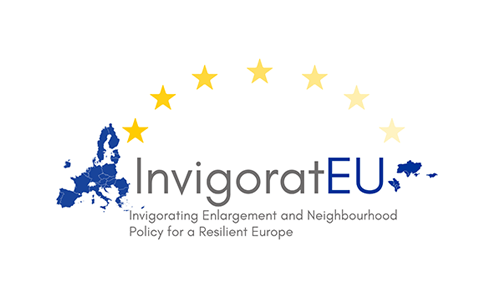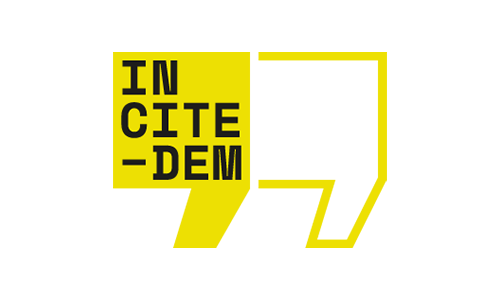The REDEMOS project is part of a broader set of initiatives focused on similar themes, addressing democratic challenges in the European Union’s neighboring regions.
The EU-funded EMBRACE project investigates obstacles to democratisation in the European neighbourhood and identifies ways to overcome them. It examines various types of blockages (behavioural, institutional, structural) and studies the cultural, historical and geopolitical contexts in which they emerge. It also reviews the EU’s ambitious, instruments and impact on democratisation over the last two decades. Its work includes the development of an innovative policy toolkit supporting the EU’s efforts in promoting democracy in its Eastern and Southern neighbourhood.
SHAPEDEM-EU is a multi-national and multifaceted research consortium of twelve academic, think tank and civil society institutions based in Europe and the Southern and Eastern neighbourhoods. This EU-funded project sets out to rethink, reshape and review the Union’s democracy support policies in its Neighbourhood countries. Through its research, SHAPEDEM-EU aims to increase the EU’s accountability, transparency, effectiveness and trustworthiness and to make Neighbourhood countries more resilient, equitable and responsive to the needs of their local populations.
REUNIR, examines how the EU can strengthen its foreign and security toolboxes to bolster the resilience and transformation of (potential) candidate countries in a new age of international relations. It empirically assesses foreign threats to the military, socio-economic and democratic resilience of nine neighbouring countries, determines capability shortfalls, maps local perceptions of the EU’s support and political perspectives inside the EU on neighbourhood relations. The project, REUNIR offers evidence-based policy recommendations to mitigate malign foreign interference and contribute to strengthening the EU’s external action.
RE-ENGAGE’s overarching ambition is to assist the EU in refining its foreign policy toolbox, including its enlargement and neighbourhood policies. This will enhance the Union’s geopolitical leverage and provide better tools for democracy promotion in its neighbourhood. To achieve this goal, RE-ENGAGE will conduct in-depth studies in six candidate countries – three in the Western Balkans (Albania, Bosnia & Herzegovina and Serbia) and three in the Eastern Neighbourhood (Georgia, Moldova and Ukraine).
The InvigoratEU project is pursuing three key objectives: a) New strategies for a strong Europe: Researchers aim to investigate necessary reforms in EU enlargement and neighborhood policy, responses to global powers’ ambitions in the Eastern neighborhood and Western Balkans, and rebuilding the EU’s foreign policy arsenal; b) Development of a future-oriented vision: Researchers will design frameworks and engage youth in developing policy recommendations for European leaders; c) Broad communication of the results.
INCITE-DEM’s main goal is to enhance inclusive participation and civic engagement, while expanding democratic innovation and dynamic feedback mechanisms between citizens and institutional actors in representative democracies. This goal is driven by the ambition to empower citizens, increasing political trust, satisfaction with democracy and societal cohesion, thus shaping the future of democracy in a world in transformation. To achieve this goal, INCITE-DEM will pursue the following seven interrelated activities.
